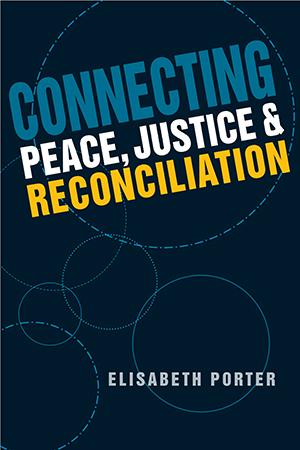
- 2015/245 pages
Connecting Peace, Justice, and Reconciliation
Hardcover: $75.00
ISBN: 978-1-62637-235-1
Paperback: $25.00
ISBN: 978-1-62637-236-8
Ebook: $25.00
ISBN: 978-1-62637-530-7
Can postconflict states achieve both peace and justice as they deal with a traumatic past? What role does reconciliation play in healing wounds, building trust, and rectifying injustices? This provocative book, incorporating the frameworks of both peace/conflict studies and transitional justice, explores the core challenges that war-torn states confront once the violence has ended.
The book is organized around a series of questions, each one the subject of a chapter, with each chapter presenting a wide range of practical examples and case studies. The author also stakes out a position on each question, encouraging readers to evaluate and respond to ideas, practices, and strategies. Narratives are a notable feature of the work, with the human consequences of war and peace highlighted throughout.
The book is organized around a series of questions, each one the subject of a chapter, with each chapter presenting a wide range of practical examples and case studies. The author also stakes out a position on each question, encouraging readers to evaluate and respond to ideas, practices, and strategies. Narratives are a notable feature of the work, with the human consequences of war and peace highlighted throughout.







